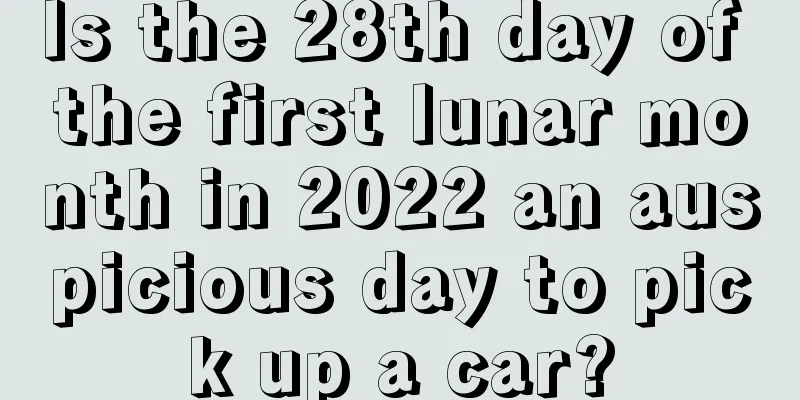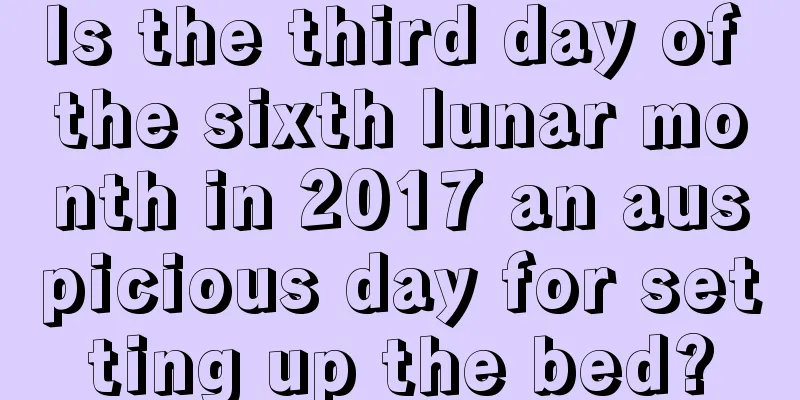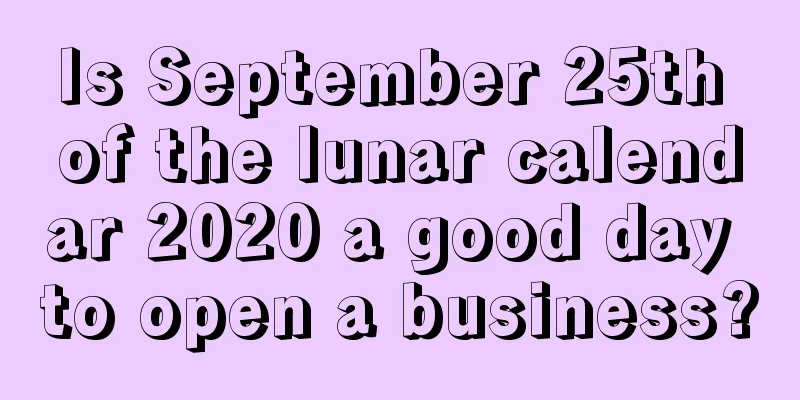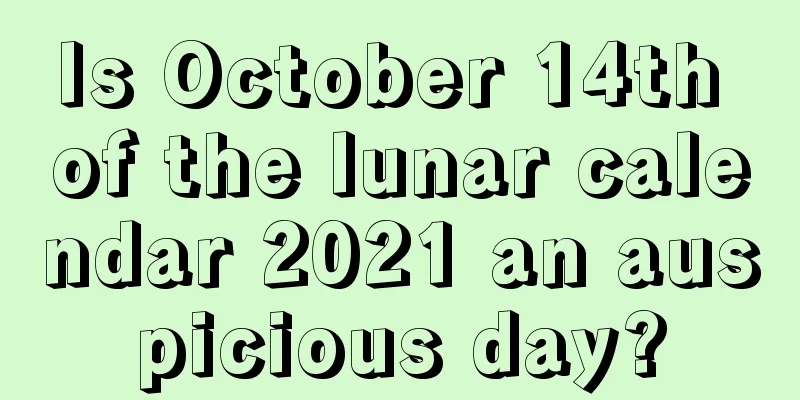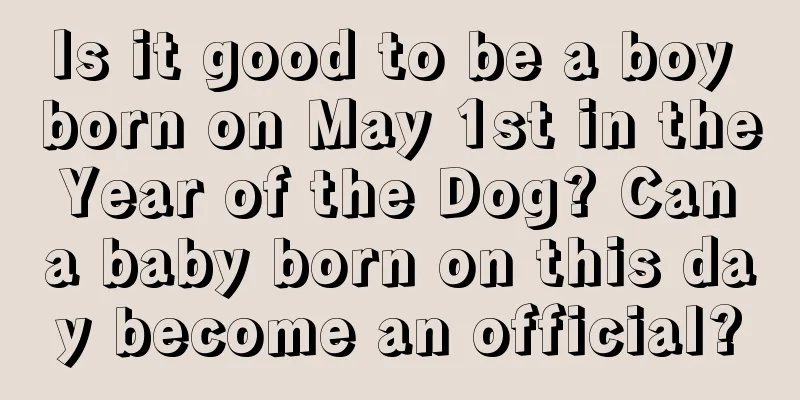What does it mean when it rains on the summer solstice?
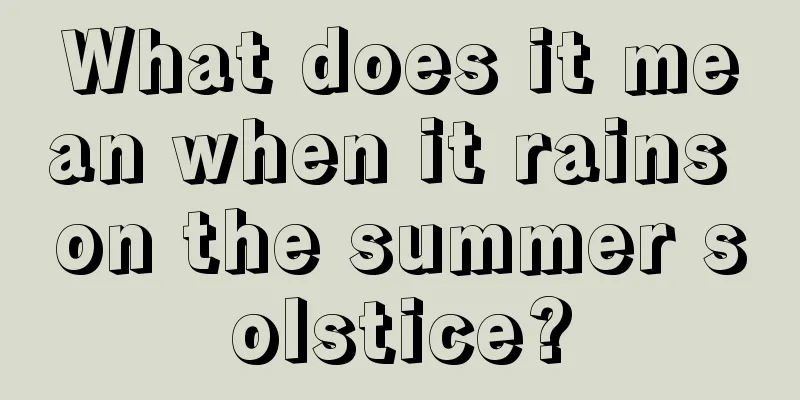
Everyone knows that the summer solstice is a solar term with extremely heavy rainfall. So why is the amount of rainfall so heavy in summer? What impacts does such heavy rainfall have? Let’s take a look! The fifth month of the lunar calendar is the plum rain season, and the rain at this time is very precious for crops. For more content about the fifth month of the lunar calendar, please pay attention to Mr. Shui Mo’s special feature on the fifth month of the lunar calendar!The meaning and saying of rain on the summer solsticeMany folk sayings and agricultural proverbs related to the 24 solar terms that are circulated in rural areas are the experiences summarized by ancient farmers in long-term labor practice, and are also the solar terms of ancient people's wisdom. These agricultural proverbs are quite accurate in reflecting the solar terms and festivals of the time. Let’s take a look at this proverb separately:Let’s first look at the first half of the sentence. The literal meaning of “No rain on the summer solstice, hottest days of the dog days” is simple and clear, which means that if it does not rain on the summer solstice, it will be very hot during the dog days of the year. As the saying goes, “The third Geng day after the summer solstice is the first day of the dog days.” Starting from the summer solstice, the third Geng day is the first day of the dog days. As the old saying goes, "The hottest time of the year is during the dog days, and the coldest time is during the coldest days." In fact, in the past there was a custom of starting counting the nine cold days from the summer solstice. There was also a song called "Summer Nine-Nine Days Song" circulating in various places, which accurately described the weather changes after the summer solstice. The hottest time of the year was also the 39th and 49th days, which was from the end of July to the beginning of August. This saying is to predict whether the dog days will be hot or not by whether there is rainfall on the day of the summer solstice, and it has a relatively high accuracy rate. Generally speaking, if it does not rain on the day of the summer solstice, it means that the dog days of summer that year will be quite hot. Let’s look at the second half of the sentence, “A drop of rain during the summer solstice is worth a thousand pieces of gold.” It means that rainfall during the summer solstice is very precious and very beneficial to the growth of crops. In some places, there is a saying that “a drop of rain on the summer solstice is worth a thousand pieces of gold” and “rain on the summer solstice is like a scholar passing the imperial examination”, which shows that farmers are quite looking forward to rainfall on the summer solstice. In some places, people also use whether it rains on the summer solstice to predict the grain harvest of that year. For example, there is a saying that "if it rains on the summer solstice, there will be rice in the barn", because "rice needs the water of the summer solstice". This makes sense, because during the summer solstice, the temperature is already very high and the sunshine is very sufficient. Crops grow very fast at this time, so the physiological and ecological water requirements are relatively large. If there is rainfall during this period, the impact on agricultural output will be great and very beneficial. Therefore, there is a saying that "a raindrop on the summer solstice is worth a thousand gold." The ancients also discovered that whether it rains during the Summer Solstice can also predict the amount of rain in the later period. For example, "If it rains eighteen times during the Summer Solstice, there will be seven or eight rains a day." This means that if it rains during the Summer Solstice, there will be plenty of rain in the later period. If it doesn't rain during the Summer Solstice, there may be a drought that year. There is a saying in this regard: "Grain in Ear, Summer Solstice is the Water Festival. If there is no rain, it is a drought." It can be seen from this that farmers still prefer rain during the summer solstice, as rainfall during this period is very beneficial to the growth of crops. |
<<: What is the date of the eighth day of the fifth lunar month in 2021? Can I worship my ancestors?
Recommend
Can I move house during National Day in 2021? What should you pay attention to when moving?
National Day is approaching. Can I move during Nat...
When will the beginning of winter in 2020 begin? Is it Yianmen in 2020 for the beginning of winter?
Introduction: The specific time when each solar te...
Is it a good idea to open on the sixth day of the first lunar month in 2018? What are the Feng Shui considerations for opening a business?
Nowadays, many college students like to start thei...
Is today, the first day of the seventh lunar month in 2019, a suitable day for funerals and burials?
Introduction: Funerals and burials of the deceased...
The weather changes before and after the beginning of spring. Will it still be cold after the beginning of spring in 2022?
As one of the 24 solar terms, the weather changes ...
How auspicious or inauspicious is the day on July 21st of the lunar calendar in 2020? What are the taboos during Ghost Month?
The seventh month of the lunar calendar is also kn...
What is the auspicious time for the 24th day of the first lunar month in 2018?
1. What day is the 24th day of the first lunar mo...
What is the date of the Spring Equinox in 2022? Is it good to get married on the Spring Equinox? Is the hexagram of the Spring Equinox good?
After the spring equinox, the climate is mild, wit...
Is February 13th of the lunar calendar in 2022 a good day? Can I renovate on the same day?
Every day is good or bad, and choosing a good time...
What are the do’s and don’ts on the 14th day of the 11th lunar month in 2018?
The eleventh month of the lunar calendar is a new...
Is it a good idea to get married on the tenth day of the fifth lunar month in 2018? Is it a good idea to get engaged and get a marriage certificate?
The fifth month of the lunar calendar has the ind...
Do girls born on October 22nd of the lunar calendar have good fortune? What name should they be given?
Introduction: The birth of every child is a happy ...
What is the zodiac sign for people born on November 17, 2017 in the lunar calendar? Keep working hard?
Introduction: In life, every day has its unique me...
What is the meaning of the Dragon Raising its Head on February 2? What's the legend?
The second day of the second lunar month in 2020 f...
What is the zodiac sign of a baby born on March 19th of the lunar calendar in 2019?
What is the zodiac sign of a baby born on March 19...

